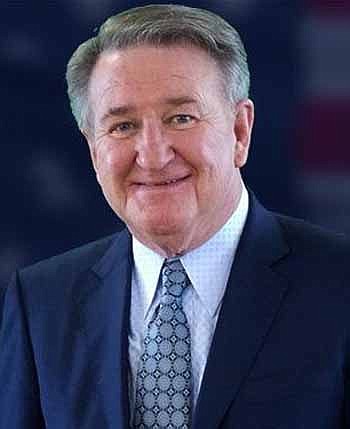
The 2016 Florida Legislature appears to have been the richest in recent history.
And a couple of incoming freshmen, recently elected without opposition, could help make the 2017 class even wealthier.
The makeup of the 160 members of the 2016 Legislature, considered a part-time lawmaking body where people earn about $30,000 a year, featured at least 55 millionaires — three more than in the prior session, according to newly filed financial-disclosure reports.
The paperwork for seven members wasn’t available Tuesday morning on the Commission on Ethics website.
In 2011, there were 46 millionaires working in the Senate and House, according to disclosure reports required to be filed annually.
University of Central Florida political-science professor Aubrey Jewett said there is a “middle- to upper-class slant to Florida public policy” as legislators typically have been wealthier than average constituents.
But Jewett, who has co-authored a book on Florida politics, admitted being surprised by the growing number of millionaire lawmakers.
“Clearly, being wealthier gives a candidate a better opportunity to get elected as it allows a person to begin to bankroll their campaign and to have the time to spend on campaigning,” Jewett said. “You don’t see a lot of blue-collar workers running, as their work schedules tie them down.”
The average net worth of House members who filed by a Friday deadline topped $1.61 million — the reports typically reflect net worths as of the end of 2015 — and the average was $4.54 million for filers in the Senate.
Among lawmakers whose reports are available for the past two years, the averages have grown since 2014 by $158,372 in the House and $436,693 in the Senate.
Due to some large portfolios the median net worth of House members — based upon the reports in hand on Friday — landed between Palm Coast Republican Paul Renner, an attorney whose net worth at the end of 2015 stood at $425,132, and Miami Republican Frank Artiles, a public adjuster and appraiser with a net worth of $426,319.
Both of their net worths grew by about $100,000 over the previous year.
Reports were outstanding from three House members and four senators.
The reports were due Friday, though rules allow lawmakers to delay filing until September without consequences.
In the Senate, the median net worth landed at Miami Republican Miguel Diaz de la Portilla, an attorney who reported his net worth at $1.014 million, up from $987,877 a year earlier.
Ben Wilcox, of the Tallahassee-based watchdog group Integrity Florida, said being a legislator takes a “tremendous commitment of time” and the growing trend of millionaires “may indicate that only those with a lot of money can afford to run and serve in a part-time legislature.”
Wilcox said the growing wealth divide between lawmakers and people they represent isn’t likely to change any time soon.
“We are creating a ruling elite that breathes rarified air,” Wilcox said. “It would take having some difficult conversations about raising legislative pay and reducing the costs of campaigning in order to give average citizens more of an opportunity to offer themselves for public service.”
The makeup of the House and Senate will undergo some upheaval before the 2017 session due to term limits and election results.
Still, if the financial totals of the six incoming lawmakers who won without opposition on June 24 is any indication, averages and medians could go up next year.
George Gainer, a Panama City Republican who will join the Senate in November, reported his net worth at $27.9 million and incoming House member Ralph Massullo Jr., a Lecanto dermatologist who also won office without competition on June 24, reported a net worth of $26.8 million.
Gainer, who has been a Bay County commissioner since 2002, owns a fleet of auto dealerships across North Florida.
Massullo and Gainer would have been the wealthiest members of the Legislature last year.
Also joining the House for 2017, Charlotte County Republican Michael Grant, president of the private ambulance company Ambitrans, is worth $3.58 million, and Don Hahnfeldt, a Republican from The Villages, has a net worth of $797,925.
Hahnfeldt, a Sumter County Commissioner, spent 32 years in the U.S. Navy, retiring in 1998 as commander of the Pacific Fleet’s strategic submarine squadron.
New to the Senate, Lauren Book, a Plantation Democrat and daughter of influential Tallahassee lobbyist Ron Book, is worth about $1.57 million.
For this past session, topping the Senate was the $25.04 million by term-limited Sen. Don Gaetz, a Niceville Republican who co-founded VITAS Healthcare Corp.
At the lower end of the Senate is Miami Democrat Dwight Bullard, a teacher who had a net worth of $10,287.
Gaetz and Bullard were among 10 senators who report their net worths dropped from 2014 to 2015. Gaetz’ portfolio had the largest drop of any lawmaker, $1.95 million.
Meanwhile, 26 senators reported their net worths increased year to year, topped by Trilby Republican Wilton Simpson, whose net worth went up $1 million, from $21.2 million to $22.2 million. Simpson’s business interests include Simpson Environmental Services, Inc.
Overall, 18 senators are worth at least $1 million, but the number could go higher as Sen. Maria Sachs and Sen. Greg Evers, whose reports were not posted Friday, were over the seven-figure mark in 2014.
In the House, there are at least 37 millionaires.
Two members — Miami Republican Carlos Trujillo, an attorney, and Ocala Republican Charlie Stone, owner of Stone Petroleum Products — went over the seven-figure mark in 2015.
The wealthiest House member remains Miami Republican Michael Bileca, the co-founder of Towncare Dental Partnership, whose $18.4 million net worth is up $1.055 million from a year earlier.
Unlike in the Senate where everyone is in the black, eight House members are in the red, with Republican Danny Burgess, an attorney from San Antonio, the deepest underwater at $253,100 due primarily to $274,290 in student loans.